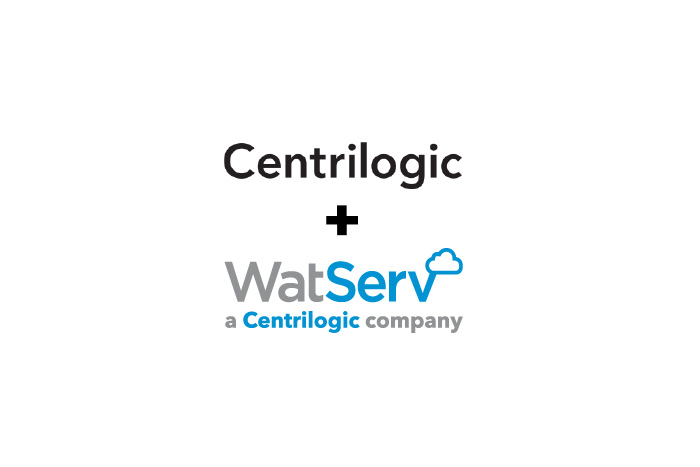Private Cloud vs. Public Cloud vs. Hybrid Cloud: What’s the Difference?
By WatServ
July 19, 2022
Cloud computing is here to stay. But many companies struggle with the challenge of choosing which cloud computing model is best for their needs: public, private or hybrid.
In this article, we’ll outline what each of these cloud computing models are, the benefits and drawbacks of each, and give you a few things to consider when choosing the right cloud model for your company.
What is a Private Cloud?
A private cloud is just what the name suggests: a model of cloud computing that is private to the infrastructure of a single user organization. It can be hosted on the user’s own data center, at a third-party location, or at a third-party private cloud computing hosting provider. Resources are proprietary and a single host manages the entire system.
The main difference between public and private cloud is that in a private cloud, the underlying hardware is separated from any other infrastructure. Whereas in public cloud computing, those services are owned and managed by a provider who also hosts other clients.

Pros of a Private Cloud
There are specific reasons why companies choose a private cloud to host their computing services. Here are some of the pros:
Enhanced Security
Since usage of a private cloud is limited to the organization’s transactions only, this typically means that a private cloud can be more secure. As public cloud providers handle traffic from millions of users, there can be a greater appeal for malicious intent.
Predictable Costs
Private cloud costs are usually predictable and the same month-to-month or year-to-year, whereas the public cloud may vary depending on usage. However, depending on the needs of the organization, this can vary significantly.
Customization
One of the biggest draws of the private cloud is the ability to customize the system to the specific needs of the users. As each organization has its own technical requirements and volumes of data, the customization that comes with private cloud computing may be the driving force behind the decision to choose that option.
Regulatory Compliance
All organizations are responsible for ensuring their data is compliant with local and international privacy and security regulation standards. In this case, a private cloud can be ideal and can be deployed in accordance with retention and access-control regulations.
Cons of a Private Cloud
As with everything, there are some drawbacks of a private cloud. Here are the most common:
Up-Front Investment
This is a big drawback for many organizations, particularly small to medium-sized companies. The investment in private infrastructure is an up-front cost that those businesses may not be able to afford. This cost also may not be a wise investment for them, given the alternatives (public cloud).
This up-front investment also includes an IT team who are well-versed in data and information management. This drives up the up-front cost, which can be prohibitive for many companies.
More Maintenance
A private cloud also means the organization is responsible for the maintenance of the entire infrastructure, including updates and patches.
Limited Scalability
Private cloud computing is limited in scalability, which can put organizations in a difficult position if they want to grow. If growth is on the horizon (as many companies anticipate), looking at scaling on a private cloud can be a challenge.
Where a Private Cloud is Most Suited
A private cloud is best used for:
- Industries that work with highly sensitive data
- Organizations that require enhanced control and security over their assets
- Organizations that work under strict regulatory regimes
- Companies that deal with intellectual property, financial data, medical records or other sensitive information
What is a Public Cloud?
Alternatively, public cloud is a service that is offered by third-party companies and they can be either free or purchased.
A public cloud is a model of enabling networks, servers, storage and apps through the internet. These services can be run across a distributed network and have the ability of rapid scaling depending on user needs.
Most people are familiar with popular SaaS cloud services, like Google Drive. There are also PaaS services, like Microsoft Azure or AWS, and IaaS services, like IBM Cloud.
Pros of a Public Cloud
As more workers go remote, use of public cloud services has increased exponentially. There’s a good reason for that. Public cloud services have many benefits for organizations:
Cost Reduction
Because public clouds use third-party infrastructure, this eliminates the overhead costs associated with on-site physical equipment, which can be expensive.
This cost reduction also extends to labor and maintenance. Using private cloud services means a company also needs to shoulder the personnel required to maintain and update their private cloud. For many organizations, this can be a big expense that might require hiring a third-party to undertake.
Near-Unlimited Scalability
One of the biggest benefits to public cloud computing is that it has near-unlimited scalability. With many public cloud services offering pay-as-you-use licensing, upgrading or downgrading is simple.
Increased Flexibility
As companies have had to move to remote work over the past two and a half years, this trend is now here to stay. And companies need permanent flexible solutions. Public cloud computing allows remote workers to access files easily and securely from any location.
Improved Security
While there are always risks to storing data, whether private or public cloud, there is considerably less risk with public cloud services. There are a few reasons for this:
- The strength of technical and non-technical controls offered by public cloud service providers like Azure, Google Cloud Platform and AWS is significantly higher than most on-premise implementations.
- Public cloud service providers make use of the latest technologies and are up-to-date on the latest threat trends and how to manage them
- Public providers are heavily certified – much more so than most customers or data center providers could achieve
Cons of a Public Cloud
While it may appeal to many, there are some considerations of adopting a public cloud:
Limited Customization
Many public cloud providers offer a limited range of services. While this works for the majority of companies, if there is a need for detailed customization, a public cloud service may not be ideal.
Limited Control
When compared to private cloud computing, public cloud services offer fairly limited control. That’s not to say they don’t offer any control, but when you outsource to a public cloud service, your data and assets are out of reach. This means configuration and other IT aspects are being managed by the cloud provider.
Lack of Closer Support
Because public cloud providers are serving millions of customers, individualized support can be a challenge. However, there are solutions to this, like partnering with a cloud service management provider.
Where a Public Cloud is Most Suited
A public cloud is most suitable for:
- Companies that have predictable needs and a mostly set number of users
- Organizations that require additional apps for company-wide communication and workflow
- Companies that don’t require extensive customization
- Test environments and software deployment
What is a Hybrid Cloud?
Hybrid cloud computing is a combination of private and public cloud services. It combines on-premises data centers (private cloud) with a public cloud service, which allows data and applications to communicate between the two cloud services.
Because of its hybrid nature, this model of cloud computing is very attractive to a lot of companies. Data that is less sensitive can be stored in a public cloud service, while highly sensitive data and other assets can be stored in a private cloud and on premises.
Pros of a Hybrid Cloud
There are many reasons why companies choose a hybrid cloud model:
Flexibility
Flexibility is one of the top reasons why companies choose a hybrid cloud model. Because companies can direct their resources to both private and public cloud, they have the freedom to evaluate which model works best for which assets.
Scalability
Hybrid cloud computing allows you to set up a unique system according to your business’s needs. Because it includes a public cloud portion, there is a lot of flexibility in growth.
Increased Security
Security is always top of mind when it comes to data and assets. Hybrid cloud models capture the best of both public and private cloud models. Protection against cyberattacks or disasters is further enhanced because data is stored in multiple locations.
Cons of a Hybrid Cloud
Just like public and private cloud computing models, the hybrid cloud model isn’t for everyone. Here are some reasons why:
Difficult to Implement
Hybrid cloud computing can be a challenge to implement and maintain. Because there are two aspects to the model – private and public – there needs to be a plan for both.
Can be Expensive
This is perhaps one of the biggest challenges with hybrid cloud computing. The cost of public licenses combined with the infrastructure and labor investments for the private cloud portion can make budgets balloon.
Compatibility and Data Integration
Compatibility between files in public and private clouds can be a bit tricky in a hybrid cloud model. The solution to this is making sure you have the software in place to run all the different types of files on both clouds. This can be crucial for the health of your business and costly if not executed effectively.
Where a Hybrid Cloud is Most Suited
A hybrid cloud is best used for:
- Companies that function across different industries with a variety of IT regulations
- Disaster recovery planning and implementation
- Providing the best combination of control, performance and cost
- Organizations that require ongoing flexibility amongst changing markets
Things to Consider Before Making a Decision
Before deciding which cloud service is right for your business, there are a few things to ask yourself and your team:
- What are my goals for scalability, security and deployment?
- How much control do we need and how much can we entrust to a cloud service provider?
- Do we have the capital to invest in on-premises infrastructure and labor?
Find Your Ideal Cloud Solution
Finding the right cloud solution for your company can feel overwhelming. Having a skilled partner with expertise in cloud computing and cybersecurity is crucial. At WatServ we’re ready to be that partner for your organization.
Learn more about how WatServ can help by visiting our Solutions Page.
About
WatServ is an IT solutions provider that helps organizations digitally transform through cloud technologies and managed services.
Serving clients as a trusted advisor since 2006, WatServ provides experience-tested, strategic solutions across all stages of the digital transformation journey. Clients choose WatServ to migrate infrastructure and applications to the cloud, secure critical data, implement disaster recovery, deploy virtual desktop, enable data-readiness for productivity solutions and manage IT environments.
Our clients span a broad range of industries, and we’re a global supplier of IT services for many Brookfield Portfolio Companies. To help our mid-size clients, we provide scalable offerings that simplify cloud adoption and drive business optimization. For enterprise clients, we co-create cloud solutions that enable stability and efficiency for complex IT tools and processes.
With more than 15 years of experience, WatServ has a track record of delivering quantifiable business results and a superior client experience. Ranked as one of Canada’s Top 100 Solution Providers for the last three years in a row, WatServ is always on.

